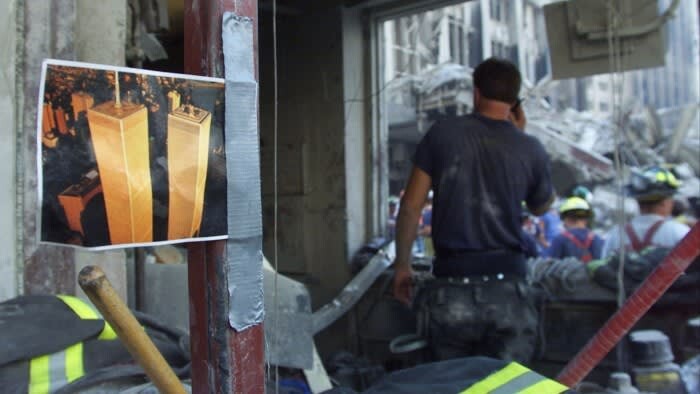-
[경제] (FT) Why markets are relatively calm in the geopolitical storm2023.10.24 AM 01:21
파이낸셜 타임스 기사 요약 (ChatGPT)
최근 이스라엘-하마스 전쟁이 광범위한 중동 전쟁이나, 심지어 제3차 세계 대전으로 확산될 가능성에 대한 공포가 확산되었습니다. 그러나 금융 시장은 이러한 분쟁에 강하게 반응하지 않았으며, 이는 시장이 현재의 상황이 최악의 시나리오로 전개되지 않을 것으로 생각하고 있음을 나타냅니다.
이 기사는 지난 몇 십 년 동안의 지정학적 위기에 대한 주식의 시장 반응을 소개하면서, 주식 시장은 초기 하락 후 상대적으로 빨리 회복하는 경향이 있다고 강조합니다.
또한, 개인은 시간이 지남에 따라 과거에 일어났던 사건의 심각성을 잊기 때문에, 현재 벌어지는 사건이 과거보다 더 위험하다고 생각합니다. 이렇게 현재의 위협을 과장하는 것은 일종의 생존 본능입니다. 그러나 시장은 수많은 참가자들의 생각이 반영되는 집단 지성이며, 현재의 위험에 대해 역사적 맥락에서 좀 더 냉철하고 균형 잡힌 판단을 하는 경향이 있습니다.
=========================================
Investors as a group don’t act like individuals — their collective mind recognises risk as a historical constant

The S&P 500 quickly recovered its losses after the terror attacks in the US on September 11, 2001
© Beth Kaiser/Reuters
Ruchir Sharma yesterday
A writer and investor, he is the author of four books, including most recently “The 10 Rules of Successful Nations”. He is chair of Rockefeller International. The views expressed in his column are strictly his own.
The attacks this month on Israel have raised fears of a wider Middle East conflict, even of a third world war. Serious voices call this the most dangerous time in living memory, with threats looming from Russia, China, North Korea and Iran.
But financial markets have mostly been subdued in reaction to the conflagration brewing in Gaza. The benchmark US S&P 500 index has barely budged since the Hamas attack on October 7. Even stock markets closest to the battle zone, from Saudi Arabia to Egypt and the Gulf states, have experienced moderate pullbacks. There has been no rush to safety in bond markets, where prices have been falling, and little drama in oil prices either.
It’s as if the markets think the conflict will fall short of the worst fears, as is often the case in geopolitical crises. In the days after the terror attacks in the US on 9/11, much cited as an analogue to 10/7 in Israel, America was on red alert for a follow-up. The S&P 500 fell by 12 per cent, the fall magnified no doubt by the fact that the US was six months into an eight-month recession. But that phase passed quickly — the S&P 500 would recover all its losses by October 11.
The same pattern can be traced back much earlier. Looking at the stock market reaction to 25 of the most significant geopolitical crises since the second world war, including cross-border conflicts from Korea in 1950 and acts of terror from the first World Trade Center bombing in 1993, the S&P 500 dropped on average by around 4 per cent, reaching bottom in 15 days, but recovering fully in 33 days.
Sixteen of these events took place in the Middle East or stemmed from conflicts or terror groups there — such as the bombings on public transport that hit Madrid in March 2004 and London in July 2005. After an initial impulsive sell-off, the market usually recovered the losses quickly. And the market sell-off on the latest conflict in the Gaza Strip is so far less striking than it has generally been. The bigger worry is rising interest rates.
As a group, investors seem to react differently to crises than individuals do. For individuals, history is remembered as better than it is lived. The mind tends to forget moments of uncertainty and recall the past as the good old days. Against memories that grow sanitised with time, the latest crisis will stand out as especially dangerous. This is not irrational: in the heat of the moment, the outcome is always unclear.
When the head of the UN speaks of a Middle East “on the verge of the abyss”, and seasoned geopolitical analysts dramatically raise the odds on another world war, it is not irresponsible for people to spread the warnings on social media. The filtering of memory is a survival instinct, as is the urge to broadcast present dangers.
The collective mind of the market, in contrast, recognises geopolitical risk as a historical constant, and frames fraught moments in that context. Is it clear, for example, that the Middle East is more precarious now than during any of the major conflagrations there since the second world war? That Russia is a more dangerous power after the loss of half its combat capacity in Ukraine? That China is a greater threat today, despite the steady weakening of its economy?
The sum total of these threats is highly uncertain and debatable; the market, an aggregation of millions of views, is inclined not to rush to judgment.
I met the legendary investor Julian Robertson in the late 1990s, when the hopes for world peace that followed the collapse of the Soviet empire were erased by new risks, including India and Pakistan carrying out a series of nuclear tests. Robertson advised me, as a young rookie investor, not to overreact.
He cited his own conversations in the early 1990s with the former UK prime minister Margaret Thatcher, who told him of a risk that the Soviet Union could have used its nuclear arsenal in a last-ditch attempt to prevent the disintegration of its empire. His point was that dire threats are ever present, even in periods remembered for tranquility, but rarely materialise full blown. Instead, events force leaders to take steps to prevent escalation.
The understanding of geopolitical crises as a historical constant steadies the markets in a storm. Individuals have reasons for romanticising the past while feeling anxious about the future. The collective mind of the market, however, often seems to make more balanced, dispassionate threat assessments. And the message the markets are sending now is that our worst fears will not come to pass.
user error : Error. B.